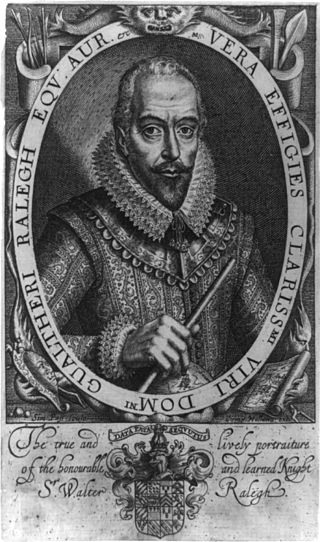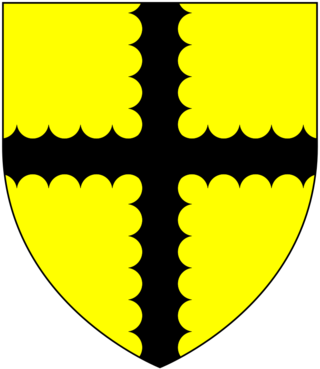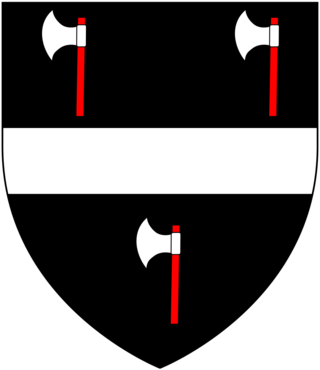William Courtenay may refer to:

Earl of Devon is a title that has been created several times in the Peerage of England. It was possessed first by the Redvers family, and later by the Courtenay family. It is not to be confused with the title of Earl of Devonshire, which is held by the Duke of Devonshire, although the letters patent for the creation of the latter peerages used the same Latin words, Comes Devon(iae). It was a re-invention, if not an actual continuation, of the pre-Conquest office of Ealdorman of Devon.

Earl of Sussex is a title that has been created several times in the Peerages of England, Great Britain, and the United Kingdom. The early Earls of Arundel were often also called Earls of Sussex.

The Lord Warden of the Stannaries used to exercise judicial and military functions in Cornwall, England, UK, and is still the official who, upon the commission of the monarch or Duke of Cornwall for the time being, has the function of calling a stannary parliament of tinners. The last such parliament sat in 1753.

Boconnoc is a civil parish in Cornwall, England, United Kingdom, approximately four miles (6 km) east of the town of Lostwithiel. According to the 2011 census the parish had a population of 96.

Baron Mohun of Okehampton was a title in the Peerage of England. It was created on 15 April 1628 for John Mohun, formerly a Member of Parliament for Grampound, Cornwall.
Bourchier is an English surname, from French Boursier, keeper of the purse. Bourchier is the Norman pronunciation.
There have been two baronetcies created for members of the Courtenay family, one in the Baronetage of Ireland and one in the Baronetage of England. One creation is extant as of 2008.

William Courtenay, 8th Earl de jure of Devon was the eldest son of William Courtenay 7th de jure Earl of Devon, and Lady Frances Finch.
William Courtenay, 1st Viscount Courtenay, also de jure 7th Earl of Devon, was a British peer. He was the son of William Courtenay, 6th Earl of Devon and 2nd Baronet Courtenay, and Lady Anne Bertie.

Heneage Finch, 2nd Earl of Aylesford, styled Lord Guernsey from 1714 to 1719, was an English politician, courtier and peer who sat in the English and British House of Commons from 1704 to 1719, representing the constituencies of Maidstone and Surrey. Born in Albury, Surrey into an aristocratic family, he also served as the Master of the Jewel Office from 1711 to 1716.

Sir William Courtenay, 1st Baronet was an English politician.

Sir William Courtenay, 2nd Baronet of Powderham Castle, Powderham, Devon, was an English landowner, a leading member of the Devonshire gentry and Tory politician who sat in the English House of Commons from 1701 to 1707 and in the British House of Commons almost continually from 1707 to 1735.

Francis Courtenay, de jure 4th Earl of Devon, of Powderham, Devon, was an English Member of Parliament. In 1831 he was recognised retrospectively as having been de jure 4th Earl of Devon, having succeeded his father in 1630.

Sir William Courtenay of Powderham in Devon was a prominent member of the Devonshire gentry. He was Sheriff of Devon in 1579–80 and received the rare honour of having been three times elected MP for the prestigious county seat (Devon) in 1584, 1589 and 1601.

Sir William Courtenay was a landowner in Devon and de jure 2nd Earl of Devon. He was the son of George Courtenay and Catherine, daughter of Sir George St Ledger of Annery. He succeeded his grandfather Sir William Courtenay, of Powderham in 1535. He was knighted in 1553 and MP for Plympton in 1555.

Sir Reginald Mohun, 1st Baronet of Boconnoc in Cornwall, was a prominent member of the gentry of Cornwall and an MP.

Sir John Chichester of Raleigh in the parish of Pilton, near Barnstaple in North Devon, was a leading member of the Devonshire gentry, a naval captain, and ardent Protestant who served as Sheriff of Devon in 1550-1551, and as Knight of the Shire for Devon in 1547, April 1554, and 1563, and as Member of Parliament for Barnstaple in 1559, over which borough his lordship of the manor of Raleigh, Pilton had considerable influence.

Sir William Wrey, 1st Baronet of Trebeigh, St Ive, Cornwall and North Russell, Sourton, Devon, was High Sheriff of Cornwall in 1598 and was created a baronet by King Charles I in 1628.

Sir William Wrey, 2nd Baronet of Trebeigh, St Ive, Cornwall and North Russell, Sourton, Devon, was MP for Liskeard, Cornwall in 1624.
Sir George Oughtred Courtenay, 1st Baronet, of Newcastle was an Irish landowner and soldier. He defended Limerick at the siege of 1642 during the Irish Rebellion of 1641.